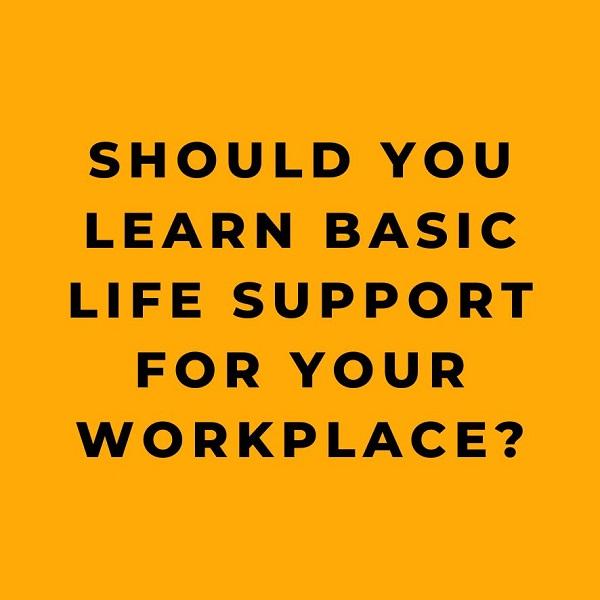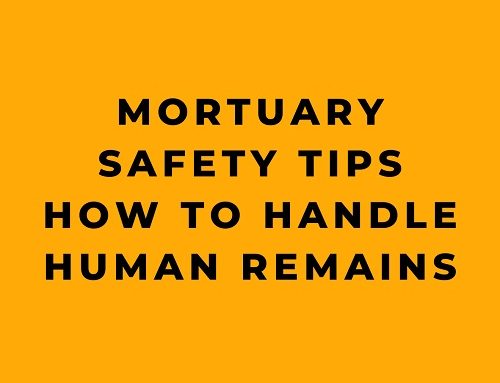Should you learn basic life support for your workplace? The answer is a resounding yes. Basic life support (BLS) training is a critical set of life-saving skills that everyone should possess, whether you’re a healthcare professional or a layperson. In this comprehensive guide, we will explore why BLS training is essential for your safety and how it can empower you to respond effectively in life-threatening situations. We will discuss the benefits of BLS training, the importance of workplace CPR training, and the impact of BLS on career opportunities. By the end of this article, you will have a thorough understanding of why learning basic life support is crucial for your workplace and beyond.
What is Basic Life Support (BLS)?
Basic life support refers to the level of medical care provided by emergency medical teams and healthcare professionals to persons experiencing cardiac arrest or respiratory arrest, such as cases of choking and drowning. BLS training equips individuals with the skills to respond immediately in life-threatening situations and increases the chances of survival for the victims. It includes recognition of signs of sudden cardiac arrest, heart attack, stroke, and foreign body airway obstruction, as well as the performance of cardiopulmonary resuscitation (CPR) and defibrillation with an automated external defibrillator (AED).
Benefits of Basic Life Support Training
1. Provides the rescuer with confidence to save lives
When accidents and medical emergencies occur, bystanders often don’t know how to respond due to a lack of knowledge and information, leading to fear and hesitation. BLS training provides individuals with the skills and hands-on experience, increasing their confidence and expertise in handling health emergencies. This confidence is crucial in ensuring prompt and effective intervention, ultimately saving lives.
2. Offers skills in the performance of CPR
CPR is a fundamental component of BLS training. Immediate CPR can double or triple the chances of survival for a victim of sudden cardiac arrest. BLS training teaches individuals the proper techniques of CPR, including chest compressions and rescue breaths, enabling them to provide crucial support to someone in cardiac distress.
3. Provides AED skills
In addition to CPR, BLS training also includes education on the use of automated external defibrillators (AEDs). AEDs are portable devices that can deliver an electric shock to the heart to restore normal rhythm in the event of sudden cardiac arrest. By learning how to use an AED, individuals can further enhance their ability to respond effectively to cardiac emergencies.
4. Opens up more opportunities for the individual
BLS certification is often a requirement for many healthcare and public safety professions. By undergoing BLS training, individuals can enhance their professional qualifications and open up new career opportunities in fields such as healthcare, emergency response, and public safety.
5. Promotes a sense of safety
BLS training instills a sense of safety and preparedness in individuals, whether at home or in the workplace. Knowing that you have the skills to respond to a medical emergency can alleviate fear and empower you to take decisive action when needed.
Importance of Workplace CPR Training
Workplace CPR training is essential for managers and employees alike. According to the U.S Bureau of Labor Statistics, more than 5,000 Americans die annually of workplace-related injuries. Cardiac arrest is one of the most common medical emergency situations in the workplace, and the victim’s chances of survival decrease with each passing minute without intervention. Workplace CPR training equips managers and employees with the skills to respond effectively to cardiac emergencies, thereby increasing the likelihood of saving lives in the workplace.
Managers have a responsibility to ensure the safety of their employees, and workplace CPR training is a crucial component of this commitment. The Occupational Safety and Health Administration (OSHA) mandates that employers comply with hazard-specific safety and health standards, including providing CPR training to employees. By investing in workplace CPR training, managers demonstrate a commitment to creating a safe and prepared work environment.
Impact of BLS on Career Opportunities
BLS training can significantly impact career opportunities across various industries. While healthcare professionals and first responders are required to have BLS certification, individuals in other professions can also benefit from BLS training. Here are some ways BLS training can impact career opportunities:
1. Knowledge of the most up-to-date life-saving methods: BLS training equips individuals with the most current and effective life-saving techniques, ensuring that they are prepared to respond to emergencies with the latest evidence-based practices.
2. Stand out from the crowd: While BLS training may not be a mandatory requirement for many fields of employment, it can set individuals apart from their peers. The skills acquired through BLS training demonstrate a commitment to safety and preparedness, which can be attractive to employers across various industries.
3. Career enhancement: BLS certification can enhance an individual’s qualifications and create opportunities for advancement in professions that require a strong foundation in emergency response and patient care.
In conclusion, learning basic life support for your workplace is not only essential for your safety, but it also equips you with the skills to save lives in critical situations. BLS training provides individuals with the confidence, knowledge, and practical skills to respond effectively to cardiac emergencies, respiratory arrest, and other life-threatening situations. By investing in BLS training, individuals can enhance their career prospects, contribute to a safer work environment, and become valuable assets in their communities. Whether you are a healthcare professional, a manager, or a layperson, BLS training is a valuable investment in your safety and the well-being of those around you.










